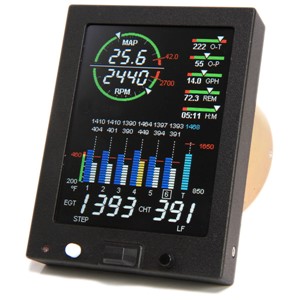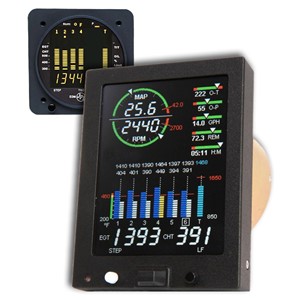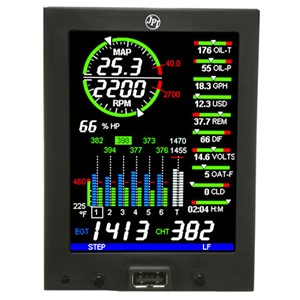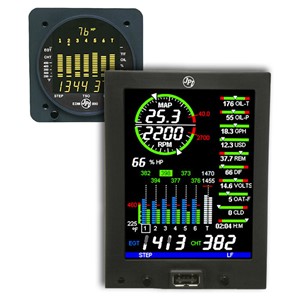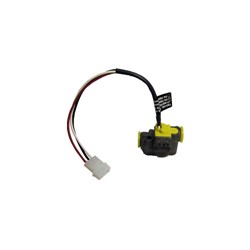The Fuel Flow Transducer measures flows of hydrocarbon fuels such as gasoline, kerosene, and #2 diesel fuel and other light transmitting, non-corrosive liquids of similar viscosity. Typical fuel flow applications include aircraft fuel monitoring systems; gasoline, diesel, and gas turbine engine test stands; and industrial furnaces.
The transducers give repeatable signals on gasoline across a 100 to 1 flow range down to 0.3 GPH. The higher viscosity of diesel fuel reduces signal repeatability at flow rates below 2 GPH. Pressure drops are very low compared to other turbine flow transducers. The transducer bearing system is rated for continuous operation at the upper end of the flow range.
The transducers produce a current pulse signal from an opto-electronic pickup with a preamplifier.
- Electrical Specifications: 12 to 15 VDC between RED (+) wire and BLACK (-) wire. 30 to 50 mA at 12 VDC.
- Signal Specifications: Open collector transistor output on WHITE wire. Sensor will pull-down to 1.0 volt with 10-15k ohm pull-up resistor installed.


